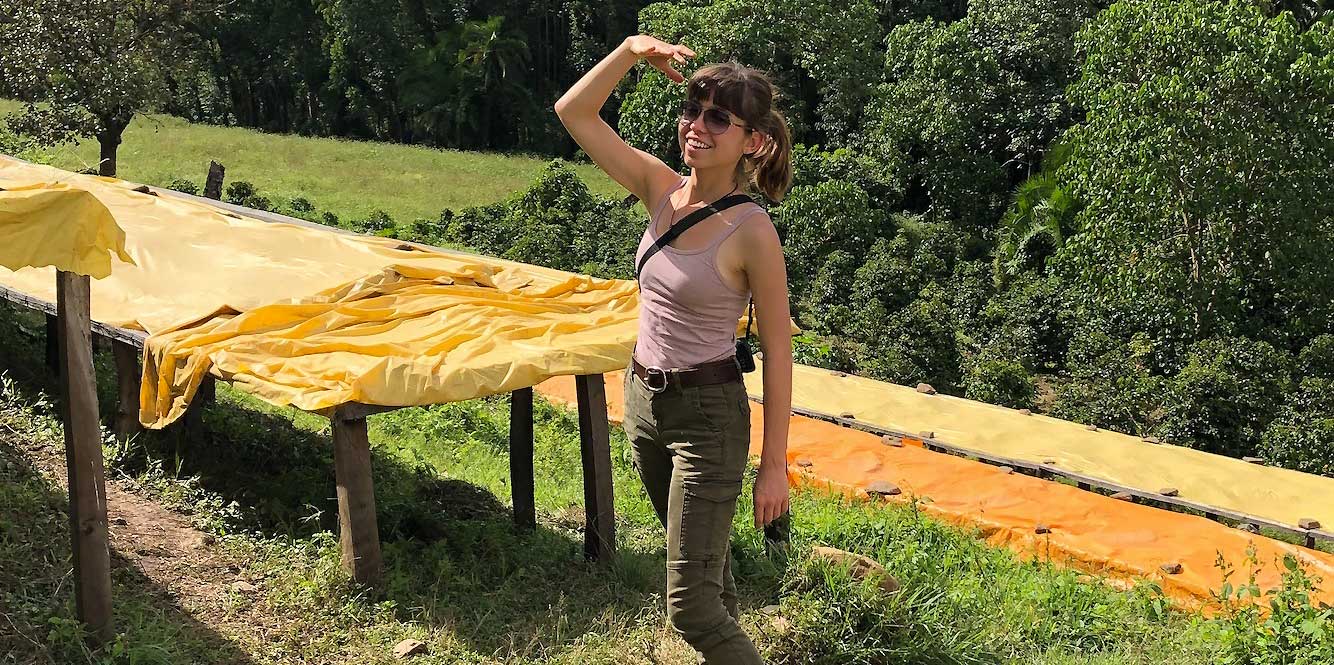The agri-food chain during times of crisis

How the RAU pushed me to strive to understand various global food issues and explore the differing levels of food production in countries all over the world.
By Michaela Tomchek
Currently, I am working towards an MSc in Sustainable Agriculture and Food Security at the RAU. It was an ideal place for me to hunker down and research, and has allowed me to delve into the world of agriculture at both the global and local levels.
My diverse course has provided me with the opportunity to meet some absolutely wonderful people. I have thorough discussions with course mates from all over the world, and have greatly enjoyed the numerous lectures and talks that have opened me up to new perspectives on global issues.
We are currently living through a moment that will be remembered for a lifetime. The Covid-19 pandemic has led to disruptions throughout the globe and within many supply chains and has also led to innovative webinars and research among all interested in understanding the impact of the virus.
I have taken part in many webinars and discussions surrounding a specific topic I may be a bit obsessive about: the impact on coffee – from supply chains to the efficient farming systems in developing nations – and the industry as whole.
After the past two months of assessment, discussions and research, I have discovered that the coffee industry has been impacted in some regions more than others. This is primarily occurring within the producing countries. However, there are also the cafes that have been closed, not brewing and selling coffee for months. Each producing region has experienced some form of alteration with production and trade.
Central America for example, had completed its harvest amidst the outbreak, with low records of cases and less-strict regulations allowing the coffee sector to easily work towards next year’s harvest. The transport and sale of coffee has been able to continue despite global conditions. Mexico, has initiated little lockdown measures and has still maintained coffee sales – and a similar story occurs in Nicaragua.
South America, on the other hand, has faced more issues as harvests loom and countries struggle to find workers to pick the coffee that is left to rot. With Brazil, the powerhouse coffee producer, and Colombia a close third in worldwide coffee production (behind Vietnam), these countries are struggling to find ways to adapt.
Venture across the globe and hard lockdowns in Africa have impacted coffee production, such as in Kenya where labour is difficult to acquire. In Asia, China’s harvest, for example, coincided with the beginning of lockdowns, leading to a detrimental reduction in harvest due to lack of labour.
Over half of the world’s coffee is produced by smallholder farmers, all of whom have limited access to resources and markets; making it difficult for them to cope during a global crisis like this.
At the production level, the impact really depends on duration of harvest, access to labour, and on the value coffee has within each country’s market. Yet, thanks to importers and coffee roasters, some producers have been able to maintain contracts and sales.
Coffee is one of those commodities that is produced and traded throughout the world. In order to recover, the whole supply chain needs to support producers and ensure contracts are maintained and payments made. Producers can then assess in what ways they can make their systems more resilient.
For me, I think understanding the impact of global crises on our food security is key to providing future guidance to producers for mitigation and adaptation.
Post-RAU, I yearn to work with smallholder producers to establish a knowledge network, providing farmers with information and resources to create resilient and sustainable systems within various farming communities.
The RAU has not only opened me up to new, innovative ideas, but has also provided me with a unique learning experience.
